In addition to Weibo, there is also WeChat
Please pay attention

WeChat public account
AutoBeta


2024-11-22 Update From: AutoBeta autobeta NAV: AutoBeta > News >
Share
AutoBeta(AutoBeta.net)10/25 Report--
On October 24, Japan's Mitsubishi Motors issued an announcement to promote the structural reform of GAC-Mitsubishi's China business, and the local production of Mitsubishi-branded cars in China will be terminated. GAC-Mitsubishi will become a wholly owned subsidiary of GAC GROUP, and the production facilities will be used by GAC Ean.
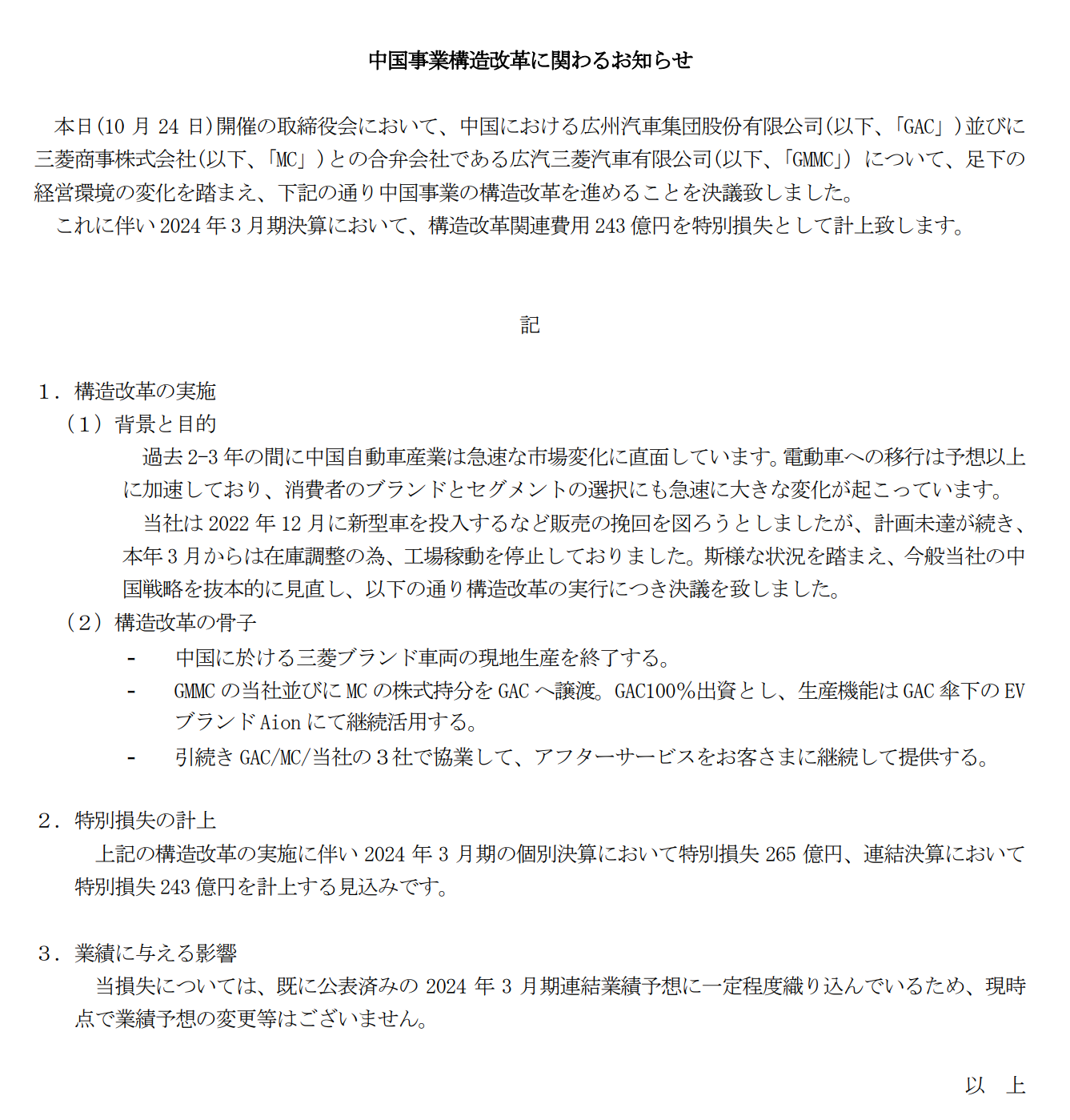
GAC GROUP announced a more detailed restructuring plan to the public. GAC GROUP issued a notice that plans to GAC-Mitsubishi, GAC-Mitsubishi Automobile sales Company to implement equity adjustment and other restructuring matters. After the completion of the restructuring, GAC-Mitsubishi will become a wholly-owned subsidiary of GAC GROUP, while GAC-Ean will use the GAC-Mitsubishi plant to increase production and capacity, and is scheduled to achieve mass production in June 2024.
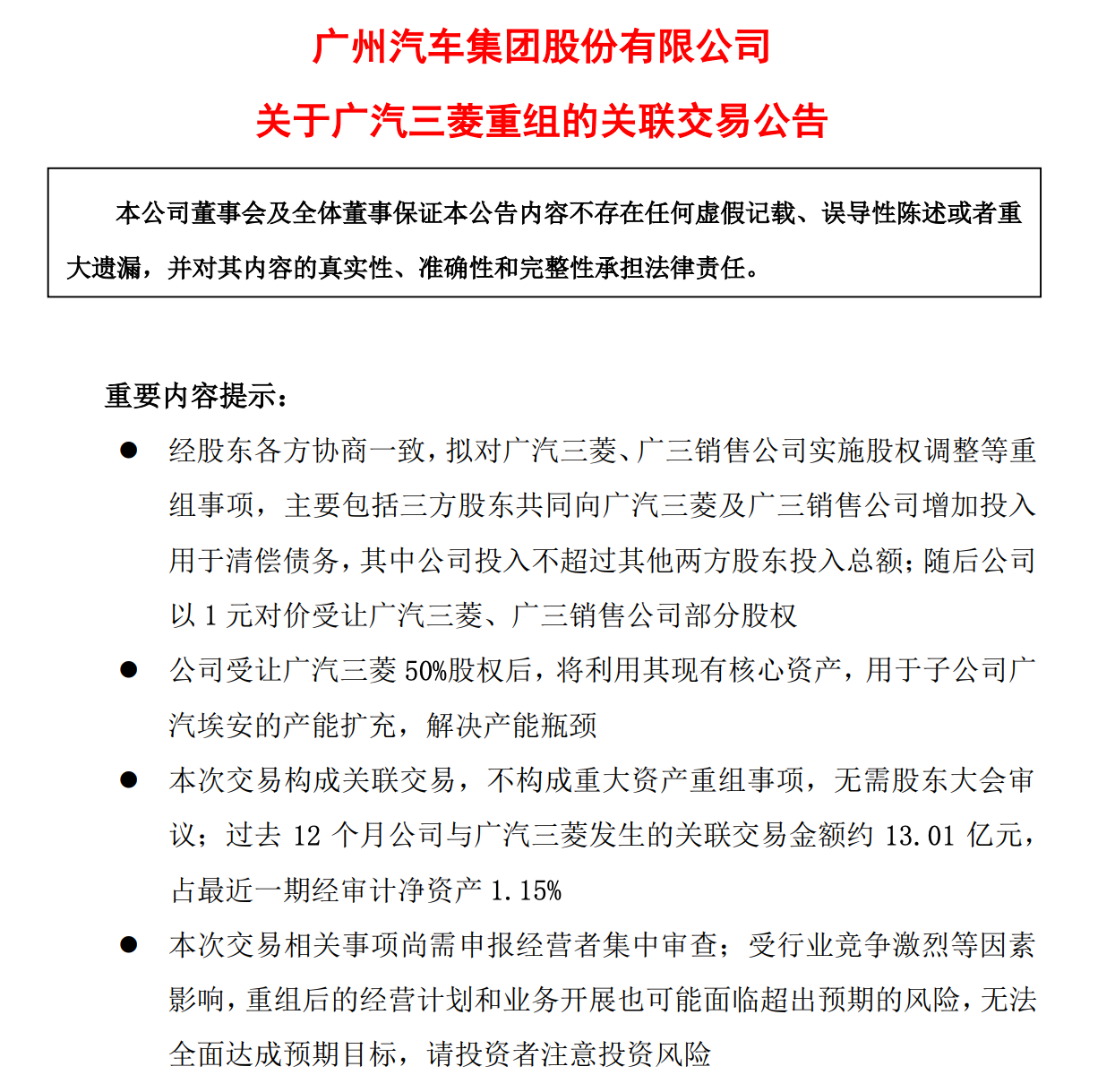
Generally speaking, GAC-Mitsubishi will remain in the market as a joint venture, but it will become a wholly owned subsidiary of GAC GROUP, while the Mitsubishi automobile brand has announced that it has terminated its domestic production, and its Hunan plant will be taken over by GAC Ean. The possibility of exporting vehicles to China will not be ruled out in the future.
Mitsubishi was the first Japanese car company to enter China. In 1973, before the reform and opening up, Mitsubishi Motor began to export trucks to China. After the 1980s, with the rise of the joint venture car construction model, Mitsubishi began to cooperate with Chinese car companies to build cars. Since the 1990s, Mitsubishi has established two engine factories in China, Shenyang Aerospace Mitsubishi and Dongan Mitsubishi, to supply engines to Chinese car companies. at that time, many Chinese car companies adopted Mitsubishi engines because of backward engine technology. including Geely, Great Wall, Dongfeng, BAIC and so on, Mitsubishi is also known as the "godfather of domestic cars".
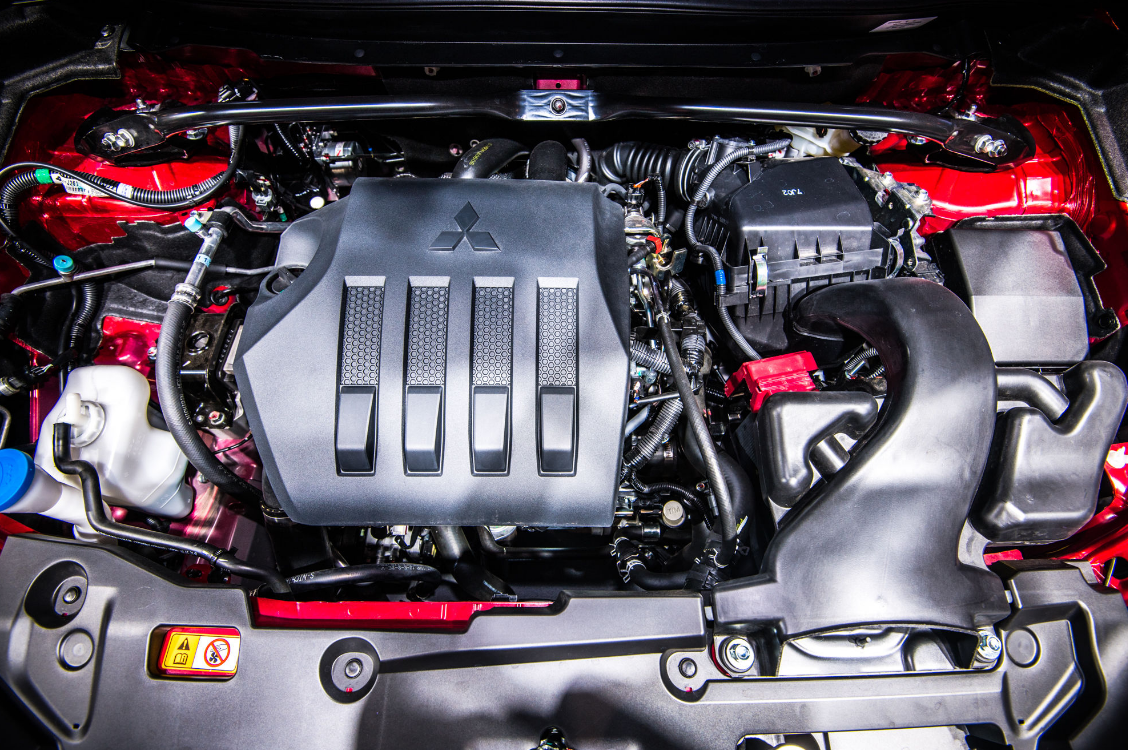
After entering the 21st century, Mitsubishi began to cooperate with Chinese car companies to produce passenger cars. In 2006, Mitsubishi bought a stake in Southeast Automobile, handing over the R & D, manufacturing, sales and after-sales business of imported Mitsubishi cars to Southeast Automobile, including Gelan, Lancer, Yishen, Junge, Fengdisi and other products. At that time, however, Mitsubishi owned only 25% of southeast Mitsubishi and did not have much say.
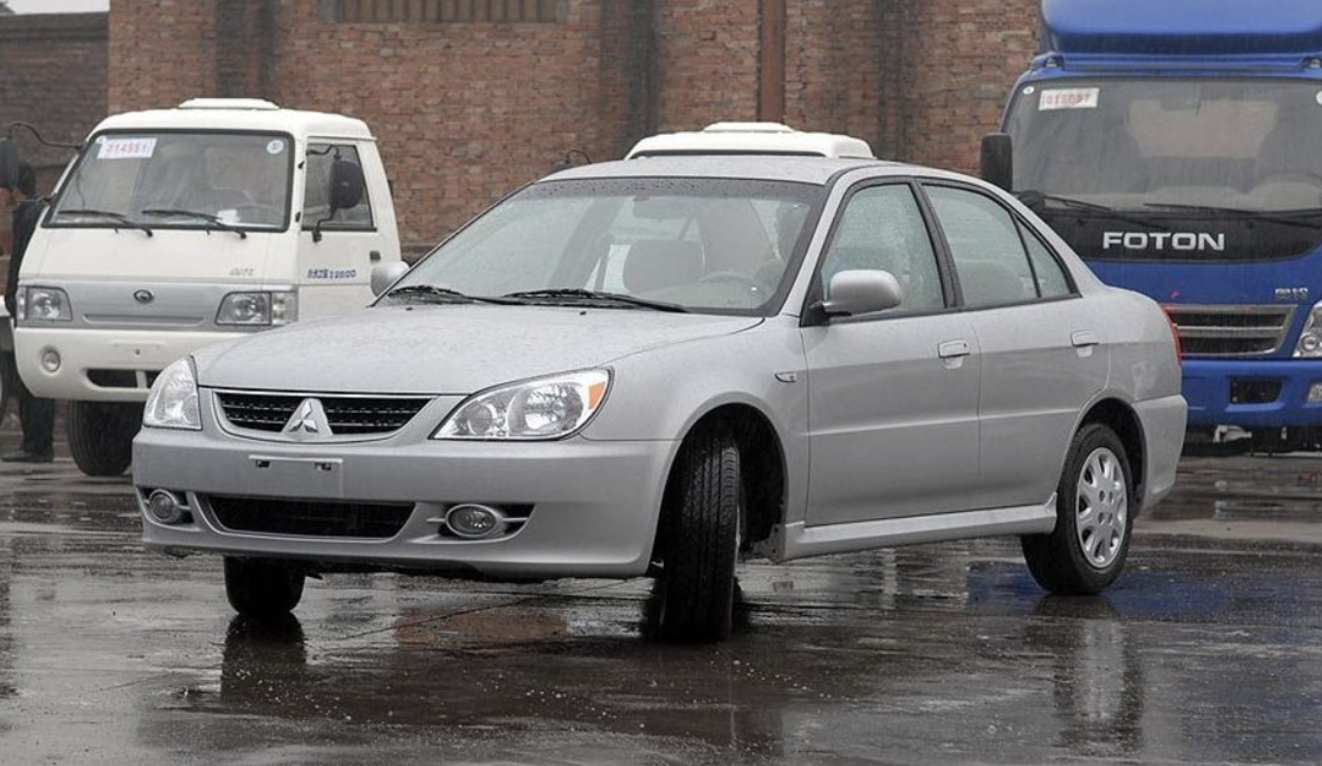
Equity share is relatively low, Mitsubishi began to find another "new love", and finally found GAC GROUP, ushered in the final stability. GAC-Mitsubishi was established in May 2012 as a tripartite joint venture among GAC GROUP, Mitsubishi Automotive Industry Co., Ltd., and Mitsubishi Commercial Co., Ltd., with 50%, 30% and 20% equity respectively, and the cooperation life span is 30 years. After confirming a "romantic relationship" with GAC GROUP, GAC-Mitsubishi successively launched Jinxuan, Yige and other models, but sales were general, but sales did not improve until the introduction of the third-generation Euroland into China in 2016. In 2018, GAC-Mitsubishi sold 144000 vehicles a year, the highest since Mitsubishi entered China. However, due to the lack of technical support and the slow iteration of product updates, coupled with the rapid rise of Chinese car companies, GAC-Mitsubishi's sales began to decline in 2019 and fell into a production and operation crisis in 2023. During this period, GAC-Mitsubishi repeatedly dismissed rumors of withdrawing from China, but it was doomed in the end.
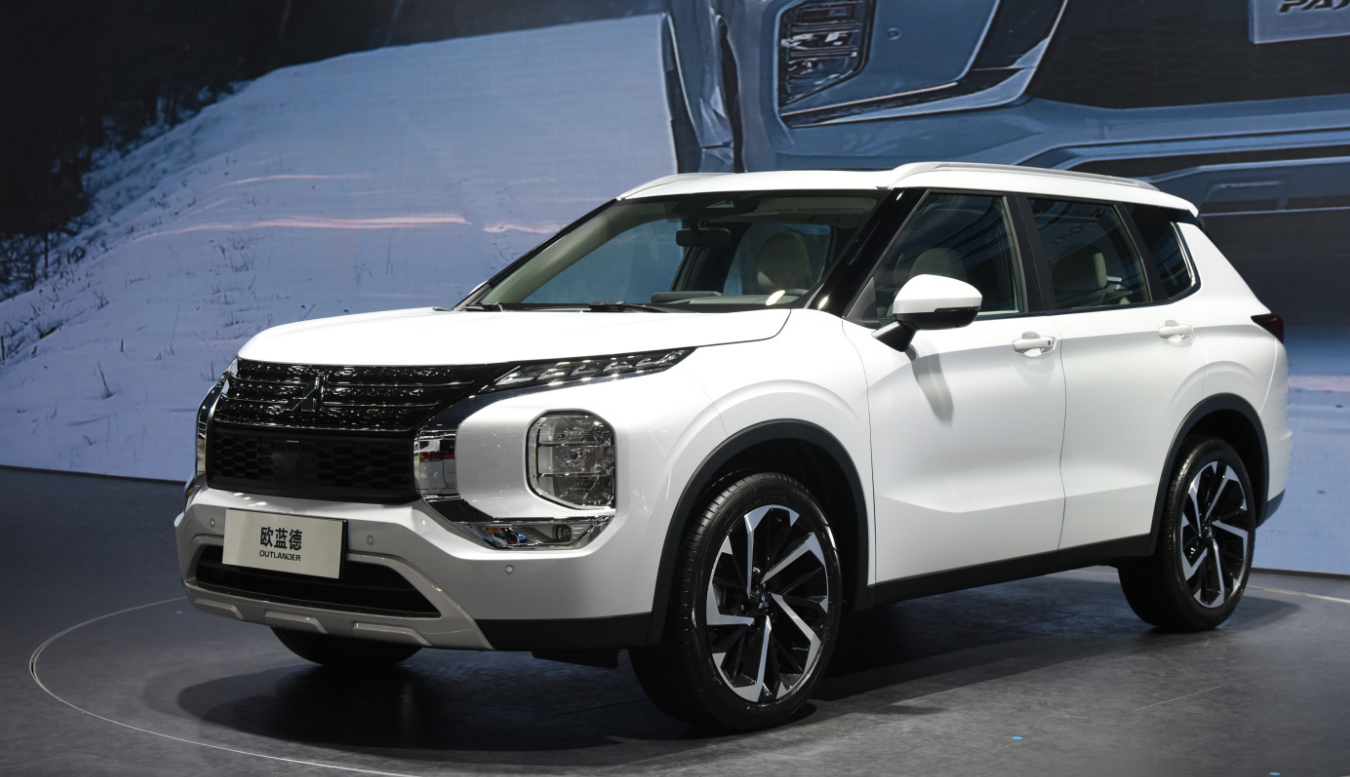
Apart from the sales factor, the Chinese market does not seem to be taken seriously in Mitsubishi's strategic planning.
Mitsubishi launched a "small and beautiful" plan in mid-2020 to shift its focus to the ASEAN market and reduce its product line. Mitsubishi Motors, chief executive of Mitsubishi Motors, revealed at the 2020 shareholder meeting that he would gradually scale back his business in markets including Europe and China, while the market performance of GAC-Mitsubishi was deteriorating at that time.
The sharp drop in sales has made the financial situation of GAC-Mitsubishi increasingly worrying until it is insolvent. It is revealed that as of March 31, 2023, GAC-Mitsubishi has total assets of 4.198 billion yuan, total liabilities of 5.613 billion yuan and net assets of-1.414 billion yuan.
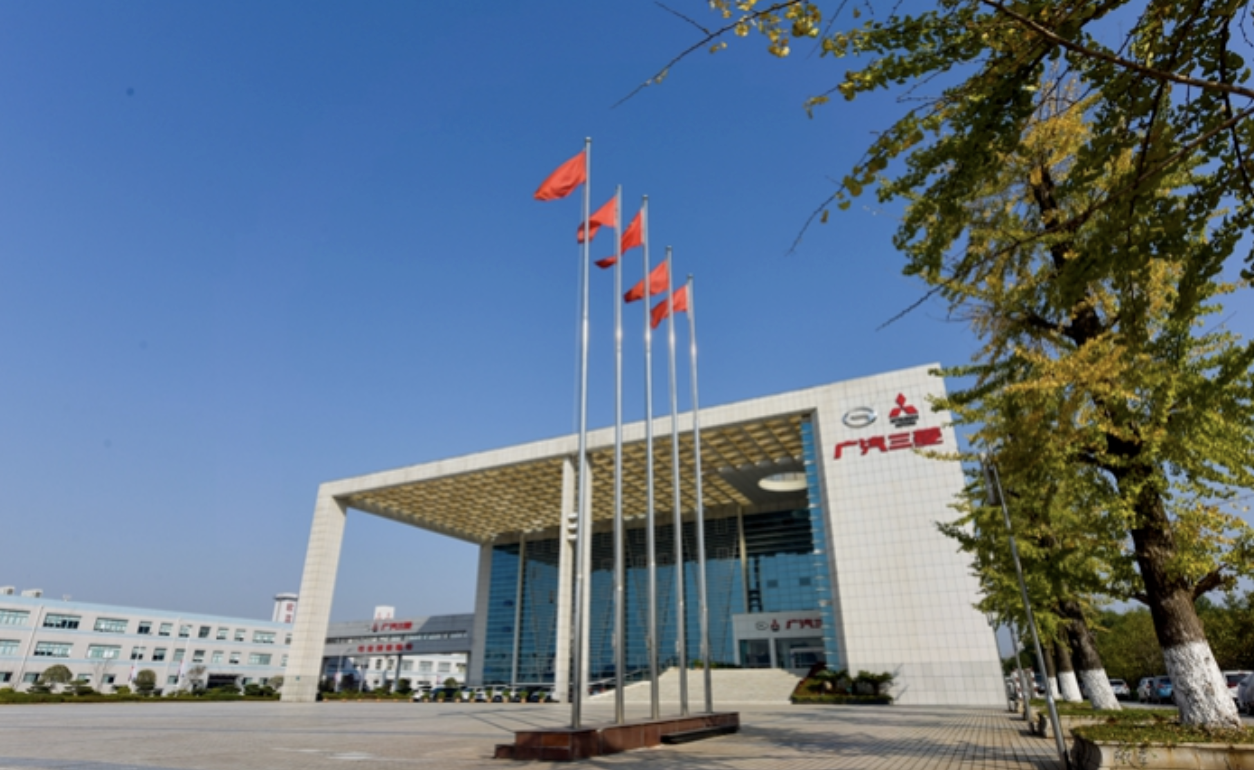
In fact, Mitsubishi is not the only one in operational crisis, but also other Japanese companies. Sales of Japanese brands totaled 2.6127 million in the first three quarters of 2023, down 15.4 per cent from a year earlier and accounting for 17.2 per cent of the Chinese market, compared with 20.0 per cent in 2022, according to the Federation.
In the past, Japanese cars have become the first choice for Chinese people to buy cars because of their high value preservation rate, high fuel economy and low maintenance costs, but with the rapid popularization of electric vehicles in China and the improvement of the brand appeal of local enterprises, it is difficult for Japanese cars to survive only on the quality and fuel consumption of German and Japanese brands. As early as 2018, Suzuki announced its withdrawal from China, transferring 50% of Changan Suzuki shares at a symbolic price of 1 yuan. In 2021, FAW Mazda was merged into Changan Mazda, leaving only one joint venture in China. In 2023, the huge group withdrew from Subaru China, and Subaru became a wholly foreign-owned enterprise.
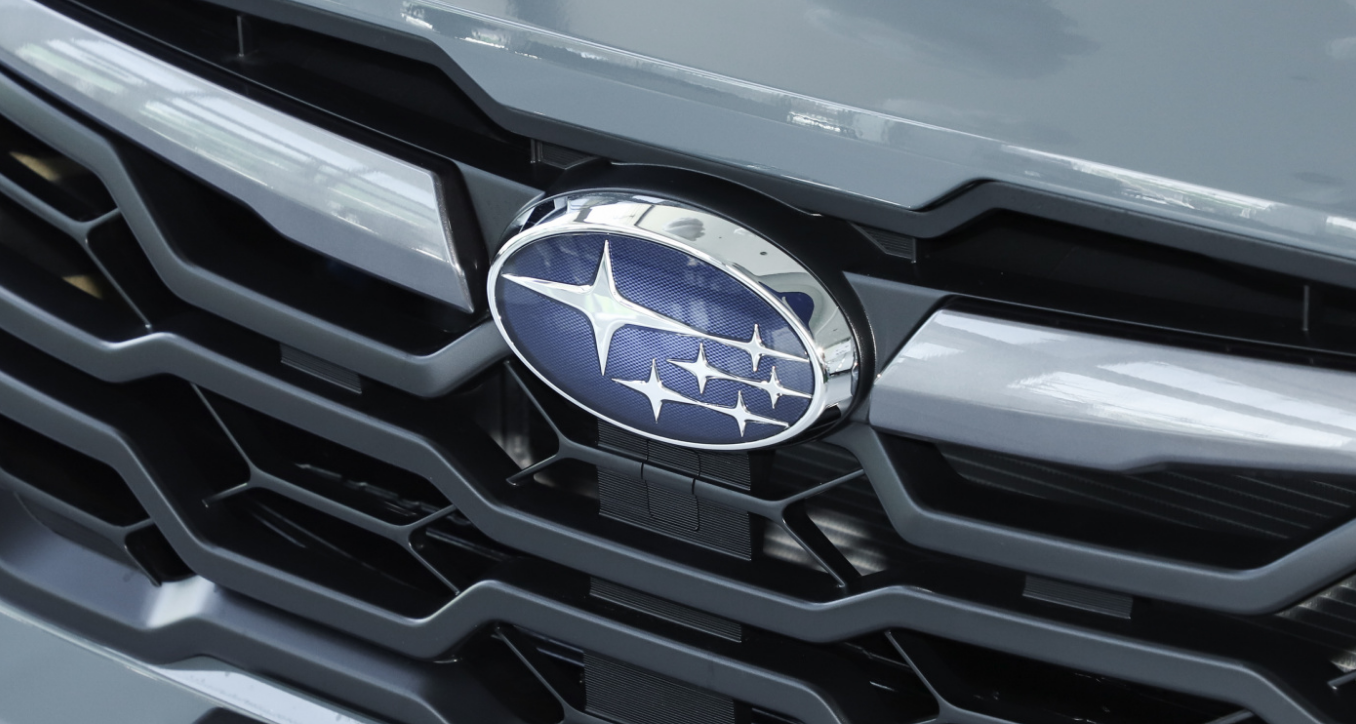
Japanese manufacturers in the top 10 in the first three quarters of 2023 included Guangzhou Auto Toyota, FAW Toyota and Dongfeng Nissan, with sales of 663800 vehicles, 584800 vehicles and 515800 vehicles, respectively, with Dongfeng Nissan plunging 26.6 percent, according to FIFA data. To make matters worse, Honda, Guangzhou Auto Honda and Dongfeng Honda continued to fall out of the top 10 after entering 2023. The two Japanese joint ventures sold 427600 and 401000 vehicles respectively in the first three quarters, a year-on-year decline of more than double digits.
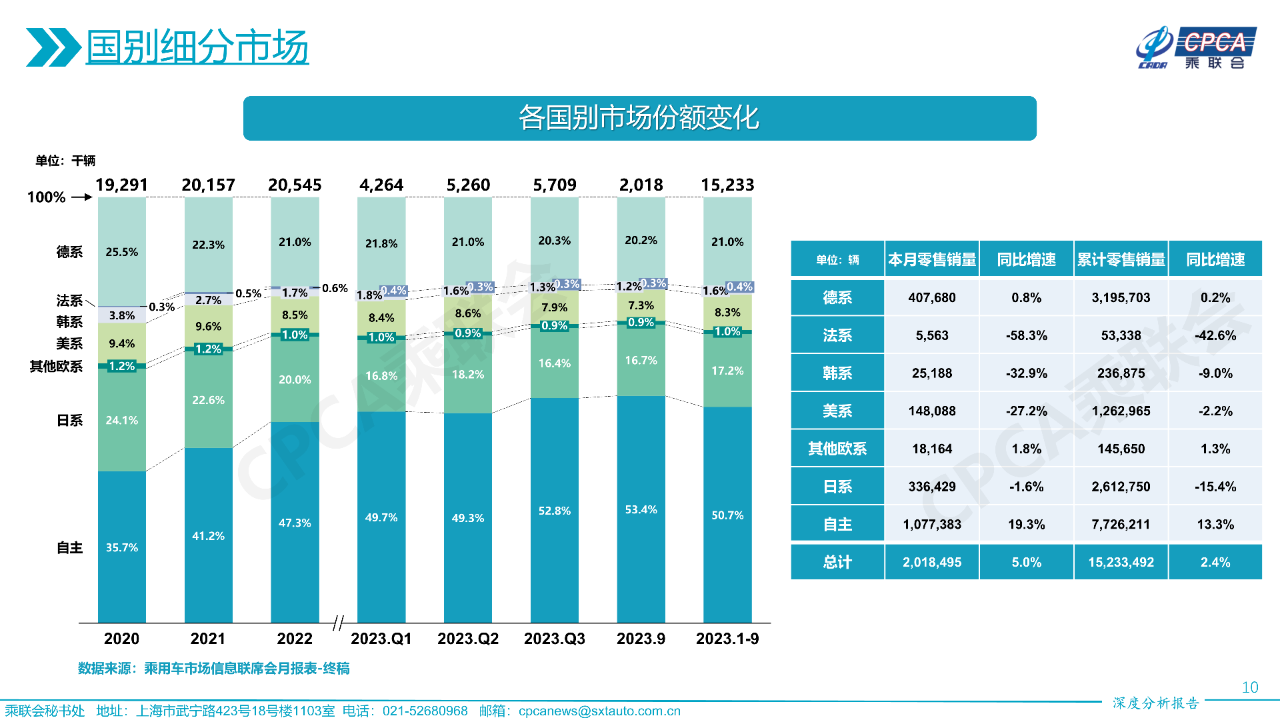
As the electrification transformation has little effect and the share shows a downward trend, the joint venture brand is facing greater sales pressure, and it is expected that the market share will accelerate to the head independent and new energy brands, and the market share of the second and third-tier brands may face a long-term downward trend. then the weak joint venture brands are gradually eliminated, withdraw from the Chinese market, weak car-making new forces may face acquisition integration.
With the dissolution and delisting of Dongfeng Renault and GAC-Mitsubishi, only Nissan is left in the reconstructed Renault-Nissan-Mitsubishi alliance to maintain the final decency. In June this year, Dongfeng Nissan released the "re-Entrepreneurship Plan" to fight for new energy. Among them, the Nissan brand will launch seven electric drive models by 2026, and by 2030, 80% of the product line will be electric drive. Qichen brand launches at least two new energy models every year, and gradually challenges the goal of annual sales of 500000 units, eventually becoming Dongfeng Nissan's second growth curve.
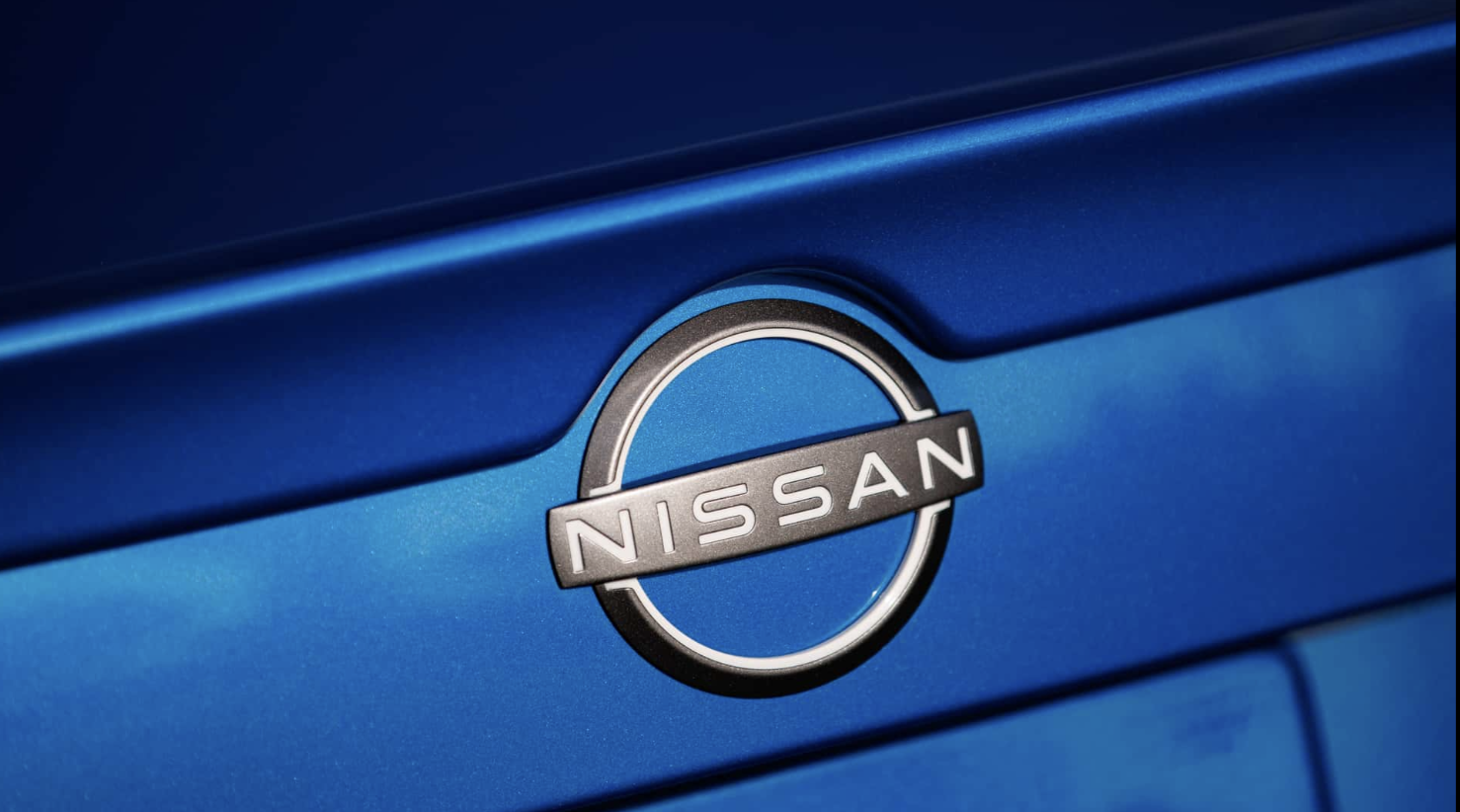
If Japanese brands want to stay in the Chinese market, they must do something in the electric car market, but it turns out that there is not much time left, and many Chinese car companies, including BYD, have begun to encroach on the joint venture market. this will bring great pressure and challenges to the electrification of Japanese manufacturers. With the rapid development of electric and intelligent cars in China, Mitsubishi is not the only foreign company that wants to cooperate with Chinese enterprises in the field of electric smart vehicles.
At the same time, the share of Japanese cars in China has declined, and whether Japanese manufacturers can hold on to the North American and ASEAN markets, which have long been considered impregnable, has also become a question. Although Japanese enterprises maintain a high market share in ASEAN, with the introduction of pure electric vehicle industry by ASEAN governments, the sense of existence of Chinese enterprises is increasing. Japanese companies with fewer pure electric vehicle models are likely to be taken away from the market share.
Welcome to subscribe to the WeChat public account "Automotive Industry Focus" to get the first-hand insider information on the automotive industry and talk about things in the automotive circle. Welcome to break the news! WeChat ID autoWechat
Views: 0
*The comments in the above article only represent the author's personal views and do not represent the views and positions of this website. If you have more insights, please feel free to contribute and share.











© 2024 AutoBeta.Net Tiger Media Company. All rights reserved.